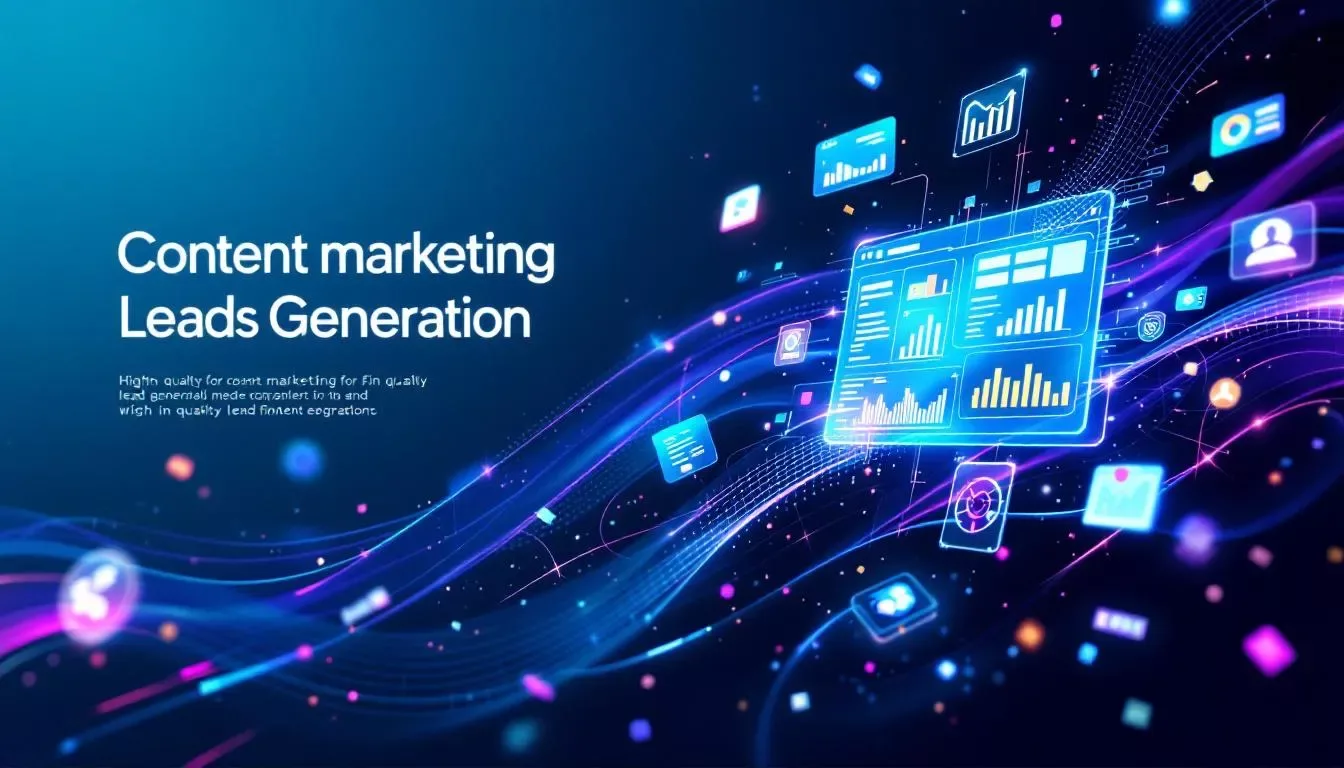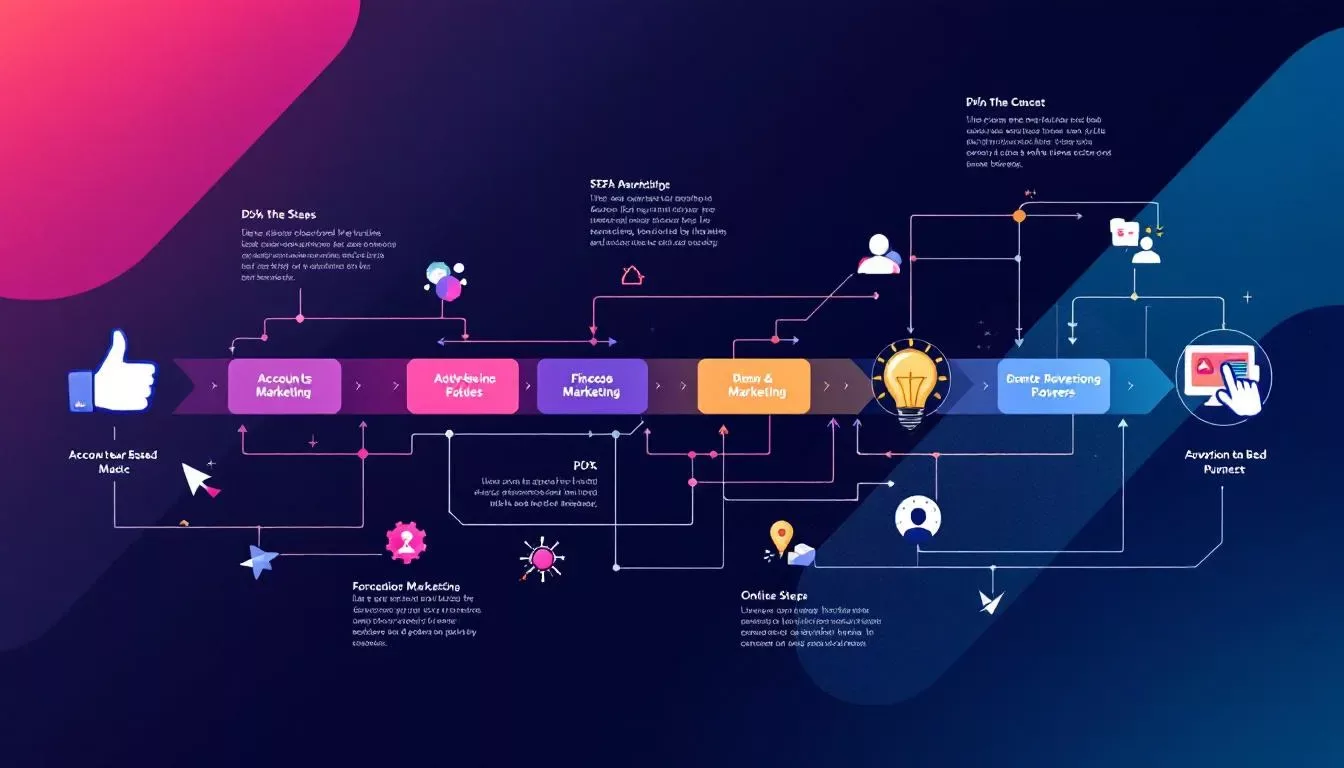Need fintech lead generation tips? Discover how to tackle industry challenges and implement strategies that attract and convert leads efficiently.
Quick Takeaways
- Fintech companies face unique challenges like regulatory scrutiny and trust issues, which require tailored lead generation strategies.
- Content marketing, especially educational material, and SEO are vital for attracting high-quality leads in the competitive fintech landscape.
- Account Based Marketing (ABM) and effective use of LinkedIn are powerful strategies to target high-value clients and enhance engagement in lead generation efforts.
Understanding the Unique Challenges of Fintech Lead Generation

The fintech industry is one of the most rapidly evolving sectors, yet it grapples with significant challenges that impact lead generation efforts in the financial services industry. One of the most pressing issues is the increasing regulatory scrutiny that fintech companies face. Navigating the complex web of compliance and regulatory requirements can be daunting, often leading to operational hurdles that can slow down lead generation for a fintech business in the financial sector and the financial industry, especially in light of current industry trends. Additionally, fintech startups must adapt to these challenges to thrive.
Trust issues also loom large in the fintech space. Prospective customers are often wary of new financial technology solutions due to concerns about security and compliance. This skepticism can significantly impact customer confidence, making it harder for fintech companies to attract and convert leads. Overcoming these trust barriers requires a strategic approach that emphasizes transparency and security in financial institutions and financial services.
Lengthy sales cycles further complicate the lead generation process in fintech. The extensive compliance and security requirements make buyers resistant to taking risks, leading to prolonged decision-making processes. This risk aversion necessitates a tailored approach to lead generation that can effectively address these concerns and shorten sales cycles.
Leveraging Content Marketing to Drive High Quality Leads

Content marketing has emerged as a cornerstone of successful lead generation strategies in the fintech industry. To create content and share valuable content helps fintech companies establish themselves as thought leaders and build trust with potential customers. Educational content, in particular, plays a crucial role in engaging and converting leads. Adopting an education-first approach allows fintech firms to highlight the relevance of their products to their audience’s needs, significantly improving engagement and conversion rates.
Consistency in content creation is key to maintaining audience interest and nurturing leads over time. Establishing SMART goals can guide fintech companies in their content marketing efforts, providing clarity and measurable outcomes. Setting SMART goals means ensuring that the content marketing strategy is:
- Specific
- Measurable
- Achievable
- Relevant
- Time-bound
This approach ensures that the content marketing strategy aligns with lead generation objectives and supports a lead generation strategy.
Diverse content formats, such as blogs, videos, and infographics, can help reach a wider audience and keep engagement levels high. Expert-based content, such as interviews with internal experts, can establish credibility and engage an advanced audience. Sharing these insights on platforms like LinkedIn can position a fintech company as a thought leader, attracting more high-quality leads.
Targeting the bottom of the sales funnel with high-quality content is particularly effective in generating quality leads efficiently. Investing in bottom-of-the-funnel content can yield quicker results, as it focuses on those who are ready to convert. This approach not only drives growth but also ensures that the leads generated are more likely to become loyal customers.
Effective Use of SEO for Organic Lead Generation
One of the most cost-effective methods for fintech lead generation is driving leads organically to your website. This approach helps attract potential customers without incurring high expenses. Implementing an effective fintech lead generation strategy can significantly improve customer acquisition opportunities. Regularly updating website content with fresh information keeps it relevant and engaging, ensuring it remains a valuable resource for potential leads.
On-page optimization, such as improving meta descriptions and headings, can increase click-through rates and enhance search performance. Backlinks from reputable websites also play a crucial role in improving search engine rankings and enhancing brand authority. These strategies collectively contribute to a more robust online presence, making it easier for fintech companies to attract organic leads.
Understanding keyword search intent is essential for targeting content that resonates with the audience. Creating content pillars and developing topic clusters can help drive organic traffic by addressing the specific needs and interests of potential leads. By focusing on these SEO tactics and analyzing search patterns, fintech companies can achieve sustainable growth through organic lead generation and thought leadership.
Utilizing Account Based Marketing (ABM) for Fintech Lead Generation

Account Based Marketing (ABM) has become a game-changer for fintech lead generation strategies. By targeting specific high-value target accounts, ABM enables brands to achieve significant revenue increases, with reported growth rates exceeding 30%. This approach allows fintech companies to focus their lead generation efforts on the accounts that matter most, ensuring a higher return on investment.
ABM campaigns involve personalized communication tailored to the unique challenges of each account, enhancing engagement and response rates. By understanding the specific pain points of key decision-makers in financial organizations, fintech firms can craft messages that resonate deeply and drive action. This personalized approach not only improves lead conversion but also strengthens relationships with potential clients.
One of the key benefits of ABM is the improved alignment between sales and marketing teams. Working together towards common goals enhances collaboration and efficiency in lead generation campaigns. This synergy ensures that marketing efforts are closely aligned with sales objectives, leading to more effective lead generation strategies and better overall results.
Harnessing the Power of LinkedIn for B2B Lead Gen Strategies
LinkedIn has become an essential platform for B2B lead generation in the fintech industry. Utilizing LinkedIn Ads allows fintech companies to target specific job titles and industries, increasing the chances of reaching potential clients effectively. Common strategies for using LinkedIn Ads in fintech include combining them with HubSpot automation workflows for maximum impact.
Creating organic posts that provide valuable insights is an effective way to educate your audience on LinkedIn. Valuable content posted on LinkedIn can significantly boost lead generation, as seen in Tilled achieving 75% of its qualified leads from inbound sources. Key strategies include:
- Creating organic posts with valuable insights to educate your audience.
- Leveraging valuable content on LinkedIn to boost lead generation.
- Combining email and LinkedIn outreach methods to enhance lead generation efforts in the fintech sector.
LinkedIn’s unique opportunities to connect with potential fintech clients make it a powerful tool for fintech marketers. Leveraging the platform’s capabilities helps fintech companies drive high-quality leads and build lasting relationships with their target audience.
Implementing AI and Machine Learning in Lead Generation Campaigns
Artificial intelligence (AI) has revolutionized lead generation efforts in the fintech industry by:
- Automating processes, resulting in faster and more precise outreach
- Enabling the identification of high-intent prospects through predictive analytics
- Allowing fintech firms to focus their efforts on the leads most likely to convert
Hyper-personalized outreach powered by AI allows fintech firms to:
- Tailor messages across multiple channels effectively.
- Automate lead scoring by analyzing behavioral signals.
- Prioritize leads based on their likelihood to convert through targeted outreach.
This automation not only saves time but also ensures that marketing efforts are directed towards the most promising leads to generate high quality leads.
Generative AI is utilized for creating tailored content, which enhances engagement and conversion rates in marketing campaigns. AI feedback loops allow continuous learning from interactions, enabling fintech companies to refine their lead generation strategies constantly. However, fintech companies should be cautious about diminishing trust built with customers when discussing AI in lead generation.
The Role of Email Marketing in Nurturing Strategy
Email marketing remains a cornerstone of nurturing strategies in fintech lead generation campaigns. As the primary method for cold outreach, email marketing can effectively reach potential leads. Key aspects of effective email marketing include:
- Personalization, which is crucial as it improves engagement and profitability.
- Addressing potential pain points and risks faced by prospects to establish trust.
- Providing relevant information to the recipients.
A successful nurturing strategy includes:
- Automation
- Quality content
- Automated workflows
- Lead scoring
- Personalization
- Segmentation
- Retargeting
Automated email workflows can keep leads engaged through personalized content at various stages of their buyer journey. Consistent follow-ups that are not overwhelming to prospects can maintain engagement without being intrusive.
By incorporating these elements into their email marketing campaigns, fintech companies can nurture leads effectively, guiding them through the sales funnel and ultimately converting them into ideal customers with fintech solutions.
Event-Based Lead Generation: Virtual and Hybrid Events

The shift towards hybrid and virtual events has become a significant trend in fintech lead generation strategies. Hybrid events offer several advantages:
- Allow for a broader audience reach
- Enable participation from individuals who may not be able to attend in person
- Enhance inclusivity, increasing the potential for generating high-quality leads from diverse demographics, providing real value.
Interactive elements and strategies that can improve attendee engagement and lead capture at hybrid events include:
- Live polls and Q&A sessions, which greatly improve attendee engagement in a hybrid format.
- Advanced engagement strategies used by B2B marketers to significantly enhance lead capture.
- Utilizing technology such as event apps to enhance networking opportunities for attendees at hybrid and virtual events.
Effective pre-event marketing is crucial for maximizing attendance and engagement at hybrid events. Promoting the event through multiple channels and providing valuable content in advance ensures high participation rates and meaningful interactions that drive lead generation efforts.
Case Study: Successful Lead Generation Efforts by Leading Fintech Companies

Successful lead generation is crucial in fintech, where a successful lead generation strategy can drastically improve business outcomes. For instance, Brex stood out at events by creatively branding their sponsorship and engaging attendees, significantly boosting their ability to generate leads. Similarly, Railz increased its conversion rates by 30% after sponsoring a niche podcast that effectively targeted developers, enhancing their demand generation efforts.
OpsVeda’s lead generation program yielded qualified leads, appointments, and revenue growth, demonstrating the successful implementation of lead gen tactics and a strong value proposition. AutoPylot boosted qualified leads, revenue, and market reach through a successful partnership with Callbox for lead generation.
Callbox’s lead generation program for Inhalation Sciences resulted in significant sales appointments, webinar registrations, and more revenue growth. These case studies highlight the importance of strategic lead generation efforts and the impact they can have on business growth in the fintech industry, including the effectiveness of a sales team.
Measuring and Optimizing Campaign Performance
Tracking web analytics is crucial for assessing the effectiveness of content in attracting and converting leads. Key performance indicators (KPIs) such as conversion rates and response times are essential for evaluating lead generation effectiveness. Monitoring these metrics provides actionable insights into campaign performance and helps identify areas for improvement.
Using CRM systems helps centralize lead data and track interactions, enhancing overall lead management. These systems provide a comprehensive view of the lead journey, allowing marketing teams to make data-driven decisions and optimize their lead generation strategies continuously.
Continuous optimization based on data insights ensures that lead generation campaigns remain effective and aligned with changing consumer preferences. Regularly reviewing and adjusting strategies helps fintech companies drive growth and achieve sustainable growth.
Wrapping Up
Effective lead generation strategies are essential for achieving rapid growth. By understanding the unique challenges of fintech lead generation and leveraging tactics such as content marketing, SEO, ABM, LinkedIn, AI, email marketing, and event-based strategies, fintech companies can drive high-quality leads and shorten sales cycles.
As we look to the future, continuous optimization and adaptation to industry trends will be crucial for maintaining a competitive edge. By implementing the insights and strategies discussed in this post, fintech companies can position themselves for success in 2025 and beyond.
Frequently Asked Questions
What are the unique challenges fintech companies face in lead generation?
Fintech companies struggle with regulatory scrutiny and trust issues, making lead generation tougher. These factors contribute to longer sales cycles, as potential customers often seek reassurance about compliance and security.
How can content marketing help drive high-quality leads in fintech?
Content marketing can really boost high-quality leads in fintech by positioning your company as a trusted expert, offering valuable insights that tackle your audience’s challenges. By consistently sharing engaging and educational content, you’ll attract and nurture potential leads effectively.
What role does SEO play in organic lead generation for fintech?
SEO is crucial for organic lead generation in fintech as it boosts your visibility in search results, driving more traffic to your site through effective keyword usage and optimization strategies. This increased visibility can directly lead to more leads and conversions.
How can AI and machine learning improve fintech lead generation campaigns?
AI and machine learning can supercharge your fintech lead generation by automating tasks, personalizing outreach, scoring leads effectively, and crafting tailored content, ultimately boosting engagement and conversion rates. It’s all about working smarter, not harder!
What are the benefits of using LinkedIn for B2B lead generation in fintech?
Using LinkedIn for B2B lead generation in fintech is a game-changer—it allows for targeted outreach through ads and organic posts, while also complementing your email marketing efforts. This combination makes it easier to connect with potential clients effectively.

